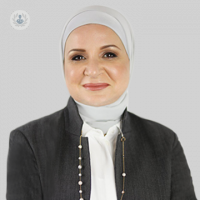How to get rid of maskne (mask acne) and prevent it
Written in association with:Learn from a leading London dermatologist about “maskne” (mask acne), an increasingly popular condition due to mask-wearing in the COVID-19 pandemic. She also shares her professional advice and tips for getting rid of maskne and preventing it.

What is mask acne?
“Maskne” is a term coined from “mask acne” and it happens when the area of your face that is frequently touching your mask develops acne. For some, this is an embarrassing condition - the resulting spots can be quite noticeable and can form a visible circle of acne around your mouth and nose.
Is it a new condition?
Maskne has actually been around for a long time (for as long as there have been surgical masks), but dermatologists, including myself, are treating a growing number of patients with maskne symptoms: Cases are rapidly increasing due to the coronavirus COVID-19 pandemic and the new necessity to wear face masks in all sectors of society.
What causes maskne?
Wearing tightly-wrapped face masks for long periods causes maskne. More specifically, occlusion is the cause. This is how dermatologists refer to something that blocks the pores. Think of how dermatologists advise against blocking your pores with things like heavy makeup, for example. Face masks come under the same advice!
How can maskne be prevented?
My advice is to change your facemask at least twice a day. By doing so, you’ll lessen the amount of oil that rubs all over your face and blocks your pores. You’ll also be able to clean your face in between masks.
When you clean your face, try using water and an oil-free foaming acne cleanser. If you can’t do this, my next suggestion is to use glycolic acid pads. I personally recommend NeoStrata glycolic pads, but there are other brands, too. However, remember to make sure you don’t use a pad with a concentration higher than 10%.
How is it treated?
The only difference between maskne and any other type of acne is the cause. We treat maskne the same way any other acne with prescription creams like benzoyl peroxide or tretinoin, or with oral medication.
I also advise trying the following lifestyle measures to complement your treatment:
- Use oil-free skincare products
- Cut down on dairy and sugar
- Improve your diet in general
- Try to lower your stress levels
- Let your skin breathe whenever you get the chance
If you’re already suffering from maskne or another acne-related condition and need further advice, it’s a good idea to see a dermatologist - a specialist can provide peace of mind.
With Dr Injibar, you can find solutions to a wide range of skin issues. Learn more and reserve your first consultation.


